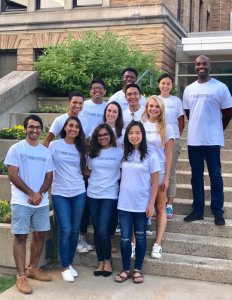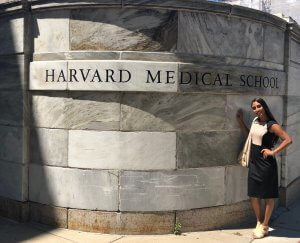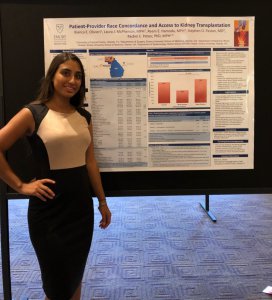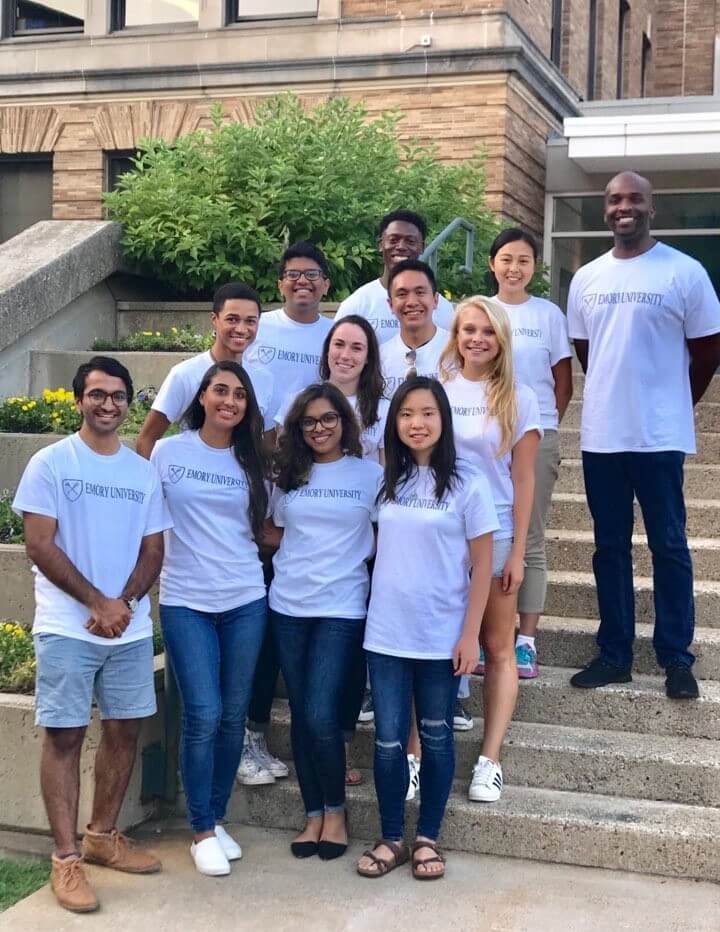
By Bianca Olivieri, Class of 2019
Did you know that blood flow to the kidneys is higher than the blood flow to your heart, liver, and brain, yet they are no bigger than your standard cell phone? This summer I was able to do research at Emory University as part of the Summer Undergraduate Program in Emory Renal Research (SUPERR).
My research project this summer focused on racial disparities in access to kidney transplantation, more specifically: does having a common race as the doctor lead to more kidney transplant evaluations? For those unfamiliar with the kidney transplant process, prior to placement on the kidney transplant waitlist, the patient must undergo a rigorous transplant evaluation to assess their health, financial status, and social support. One of the major benefits to having a kidney transplant is not having to attend time-costly dialysis sessions 3 or more times a week, consequently improving the patient’s quality of life and reducing health care costs. The southeastern United States has one of the lowest kidney transplant rates, despite patients having referrals for evaluations. Therefore, this study was important to determine the reason for the low amount of follow through, as well as reasons for high racial disparities in access to kidney transplantation.
As part of my project, I was able to interact with dialysis/transplant patients and discuss issues that influenced whether they do or do not attend their kidney transplant evaluation appointments. It was interesting to see the various rationales of these patients and to see how the process influences the patient’s decision. After the survey, I narrowed my topic to patient-provider race concordance because of previous articles I read that discussed patient compliance rates for patients having the same race as their provider. I learned a coding program (SAS 9.4) that allowed me to do statistical analysis to determine the effects of race on evaluation attendance. Through this program, I was able to take large amounts of data from the surveys, a 457 patient study population, to gather my statistical analyses needed to determine the correlation between race concordance and patient attendance. Having experienced coding in in high school it was easier for me to learn how to code, however there were still challenges for me in the process, such as miscoding a variable. Coding was similar to solving a puzzle and as a Forensic Science major, I love solving puzzles.
What interested me the most through this entire project was seeing the lack of diversity in healthcare providers. For example, in the three Georgia dialysis facilities used in this study, white patients only reported being a different race than their providers 42% of the time, black patients reported it as 76%. While the study did not demonstrate statistically significant evidence that race affected transplant evaluation attendance; there was evidence that showed the need for more physicians of diverse cultural and ethnic backgrounds. As a Latina interested in pursuing a career in medicine, I hope to be that difference in generations to come, bringing a different cultural perspective into the field.
Doing summer research at another university was an amazing experience that I would recommend to any student with or without previous research experience. For my situation, I work in a research lab at UCF with Dr. Bridge focusing on toxicology research, but I wanted a clinical research experience because of my interest in attending medical school. Therefore, attending Emory for the summer and working in a clinical environment was a completely different research experience than my research here at UCF. I think it is extremely beneficial for those interested in research to pursue a variety of projects because it allows you to explore your likes and dislikes. I also think this experience has opened doors for future collaboration and job opportunities that would not be available to me otherwise.


For example, at the end of the summer I was able to present my research at Harvard Medical School and got to meet influential researchers and professors!
My ultimate suggestion for those interested in pursuing summer research at another institution is to be open-minded and apply to a variety of places. Do not limit yourself to what you think your capabilities are.
